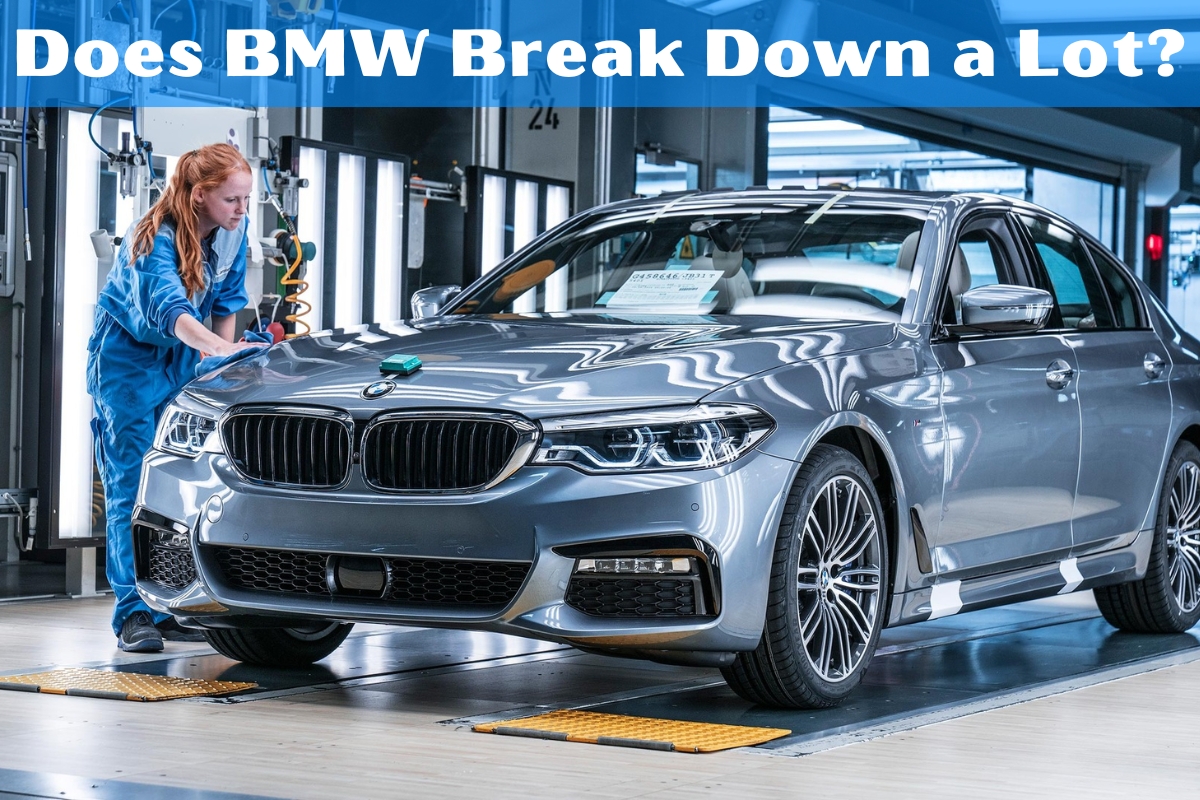Does BMW Break Down a Lot? An In-Depth Analysis

In bold: BMW has a reputation for being a well-engineered, high-performance luxury brand. However, many people wonder if BMWs break down frequently or have significant reliability issues. This article will explore the reliability of BMWs, common problems, repair costs, and factors that contribute to breakdowns.
BMW is a prestigious German automaker known for its sleek designs, powerful engines, and luxurious interiors. However, one question that often arises among potential buyers is whether BMWs are prone to frequent breakdowns. This comprehensive guide delves into the reliability of BMWs, examining various aspects that influence their durability and longevity.
BMW Reliability Ratings: An Overview
When it comes to reliability ratings, BMW has a mixed track record. According to data from Consumer Reports, BMW ranked 8th out of 29 brands in terms of reliability in 2018. However, its ranking has fluctuated over the years, with the brand often scoring average or below-average ratings.
RepairPal, a website that evaluates car repair data, gives BMW a reliability rating of 2.5 out of 5, which places it 30th out of 32 car brands. This rating is based on factors such as average annual repair costs, frequency of visits to repair shops, and the severity of repairs required.
Common BMW Problems and Repair Costs
While BMWs are known for their engineering and performance, they are not immune to issues and breakdowns. Some of the most common problems reported by BMW owners include:
Engine Issues:
- N20 and N55 engines: Timing chain problems, oil leaks
- N63 V8 engines: Battery replacement issues
Electrical and Electronic Problems:
- Battery Safety Terminal (BST) malfunctions
- Locking system issues (key fob and car sensor desynchronization)
Cooling System Failures:
- Plastic components becoming brittle and failing over time
Suspension and Steering Problems:
- Issues with suspension ball joints, tie rods, and control arms
Repair costs for BMWs can be higher than average due to the use of specialized parts and labor. According to RepairPal, the average annual repair cost for a BMW is $968, which is significantly higher than the industry average of $652.
Factors Contributing to BMW Breakdowns
Several factors can contribute to the frequency of breakdowns in BMWs:
Driving Habits: BMWs are designed for high-performance driving and may not perform as well when driven infrequently or for short distances. Lack of regular highway driving can lead to issues such as battery drain and oil degradation.
Maintenance: Proper maintenance is crucial for any vehicle, and BMWs are no exception. Skipping scheduled maintenance or using low-quality parts can increase the likelihood of breakdowns.
Age and Mileage: Like any vehicle, BMWs are subject to wear and tear as they age and accumulate miles. Older BMWs with higher mileage are more likely to experience issues compared to newer models with lower mileage.
Improving BMW Reliability
While BMWs may have a higher propensity for breakdowns compared to some other brands, there are steps owners can take to improve their vehicle’s reliability:
Regular Maintenance: Adhering to the recommended maintenance schedule and using genuine BMW parts can help prevent many common issues.
Driving Habits: Regularly driving your BMW on the highway and avoiding frequent short trips can help keep the engine, battery, and other components in better condition.
Prompt Repairs: Addressing issues promptly, rather than ignoring warning signs, can prevent minor problems from escalating into major repairs.
Warranty and Extended Coverage: Purchasing a BMW with a warranty or extended coverage can provide peace of mind and help offset the costs of repairs.
The Bottom Line: Does BMW Break Down a Lot?
The answer to whether BMWs break down a lot is not a straightforward yes or no. While BMWs may have a higher propensity for certain issues and higher repair costs compared to some mainstream brands, their reliability can vary based on factors such as driving habits, maintenance, and age/mileage.
For those considering a BMW, it is essential to weigh the potential costs and risks against the brand’s performance, luxury, and prestige. Proper maintenance, prompt repairs, and responsible driving habits can go a long way in mitigating the risk of frequent breakdowns.
Ultimately, the decision to purchase a BMW should be based on an individual’s priorities, budget, and willingness to potentially invest in higher maintenance and repair costs.
Variations in Reliability Among BMW Models
While BMW as a brand may have a mixed reputation for reliability, it’s important to note that not all BMW models are created equal. Some models have consistently performed better than others in terms of dependability.
For instance, the BMW i3, the brand’s first mass-produced electric vehicle, has been praised for its reliability. According to data from Which?, a consumer organization in the UK, the i3 had a relatively low fault rate of 16% for newer models (0-3 years old) and a breakdown rate of only 4.4%.
On the other hand, models like the BMW 7 Series and X5 have been known to experience more frequent issues, particularly as they age. The 7 Series, BMW’s flagship luxury sedan, has faced problems with its suspension and exhaust/emissions systems in older models (3-8 years old).
The Role of Proper Maintenance
One of the most crucial factors in determining the reliability of a BMW is proper maintenance. BMWs are designed to be high-performance vehicles, and as such, they require more frequent maintenance and attention compared to some mainstream models.
Following the recommended maintenance schedule, using genuine BMW parts, and addressing issues promptly can significantly extend the lifespan of a BMW and reduce the likelihood of breakdowns. Neglecting routine maintenance or attempting to cut corners can lead to costly repairs down the line.
Certified Pre-Owned BMWs: A Smarter Choice?
For those interested in owning a BMW but concerned about potential reliability issues, considering a Certified Pre-Owned (CPO) vehicle could be a wise decision. CPO BMWs undergo rigorous inspections and come with extended warranties, providing added peace of mind.
While CPO vehicles may cost slightly more upfront, they can offer substantial savings compared to buying a brand-new BMW while still benefiting from the manufacturer’s quality assurance and warranty coverage.
Conclusion
In conclusion, while BMWs may have a higher propensity for certain issues and more expensive repair costs compared to some mainstream brands, their reliability is not a simple yes or no answer. Factors such as driving habits, proper maintenance, and age/mileage play a significant role in determining the longevity and dependability of a BMW.
For those considering a BMW, it is essential to weigh the potential costs and risks against the brand’s performance, luxury, and prestige. Proper maintenance, prompt repairs, and responsible driving habits can go a long way in mitigating the risk of frequent breakdowns.
Ultimately, the decision to purchase a BMW should be based on an individual’s priorities, budget, and willingness to potentially invest in higher maintenance and repair costs. By being well-informed and taking proactive steps to maintain their vehicles, BMW owners can enjoy the thrill of owning a high-performance luxury car while minimizing the risk of costly breakdowns.





